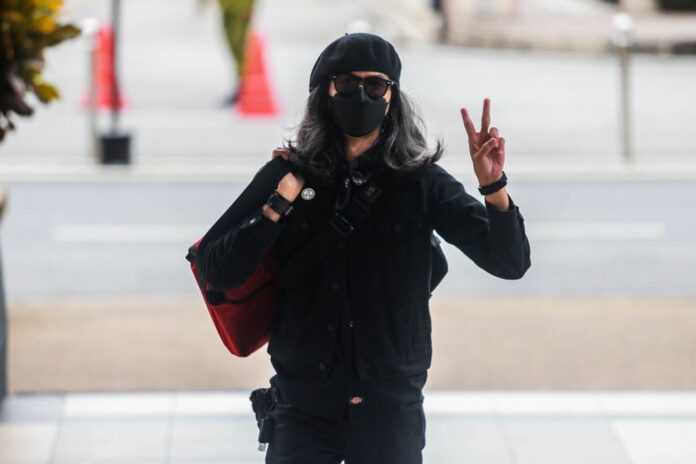Activist Fahmi Reza arrives at the Kuala Lumpur High Court February 10, 2022. — Picture by Hari Anggara
KUALA LUMPUR, Feb 10 — Satirist and graphic artist Fahmi Reza has claimed trial to a charge at the Sessions Court here today, for allegedly making an “obscene” social media post with the intent to insult a person.
It is understood that the post in question depicts Science, Technology and Innovation Minister Datuk Seri Dr Adham Baba.
According to the charge sheet, the post was published on Twitter through account @kuasasiswa at 3.02pm on February 10, 2021 — when Adham was still health minister.
The charge, under Section 233(1)(a) of the Communications and Multimedia Act 1998, provides a maximum fine of RM50,000, or imprisonment for up to a year, or both, if found guilty.
Judge Sabariah Atan allowed Fahmi bail of RM5,000 with one surety and set March 30 for case mention.
Earlier, deputy public prosecutor Najihah Farhana Che Awang had asked the court for bail to be set at RM10,000.
However, Fahmi’s lawyer, Rajsurian Pillai, asked for a lower bail between RM4,000 and RM5,000 — arguing that his 44-year-old client earned a monthly stipend of only RM3,000 as a freelance graphic designer, and also has elderly parents to care for.
He added that Fahmi was not a flight risk and has given his full cooperation with the authorities regarding this case, as well as past cases.
Yesterday, Malay Mail reported — based on reports from another local news media report, which quoted Rajsurian — that Fahmi was to be charged in relation to his controversial “House of Balak” artwork posted on social media in January.
However, reporters were today caught by surprise upon finding out the charge was instead in relation to a February 10, 2021 post.
The post in question contains a text in Malay meaning “Get a 70 per cent discount on the mandatory quarantine period for international travellers”, followed by a “promo code” that contained an allegedly insulting phrase.
On February 8, 2021, Adham made an announcement that ministers returning from official duties overseas were from then on only required to go through a three-day quarantine — at a time when members of the public were required to go through 10 days instead.


